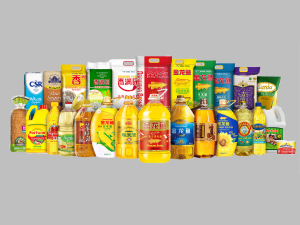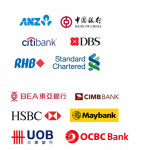UOB extends US$200 million sustainability-linked loan to Wilmar in support of agricultural sustainability in Asia
United Overseas Bank Limited (UOB) is supporting Wilmar International Limited (Wilmar), a leading agribusiness group in Asia, in its ongoing efforts to advance its sustainability agenda through a two-year US$200 million sustainability-linked loan.

In structuring the sustainability-linked loan, UOB worked with Wilmar to identify a list of performance indicators in areas including corporate governance, carbon emissions, land use and biodiversity, community relations and supply chain practices.
Table of Contents
The performance indicators will help in ensuring that Wilmar’s operations are socially and environmentally responsible, as the company furthers its commitment to meeting the global demand for food without causing a drain on resources. This is especially important given that the global population is expected to increase to close to 10 billion by 2050.
The interest rate on the sustainability-linked loan will be pegged to Wilmar’s achievement of the pre-determined targets that have been set based on the list of performance indicators. Sustainalytics, a global independent provider of environmental, social and governance (ESG) research and ratings will conduct the assessment of whether Wilmar has achieved those targets for the sustainability-linked loan on an annual basis.
Mr Charles Loo, Wilmar’s Chief Financial Officer, said, “In building a responsible business, Wilmar believes that the pursuit of our sustainability goals must encompass all aspects of our operations including seeking sustainable financing solutions at the corporate level. We are very pleased to have UOB’s support with this sustainability-linked loan which aligns our sustainability and corporate financing strategies. It is important to Wilmar that we continue to improve our ESG performance as the business grows.”
Ms Lim Chen Chen, Head of Group Structured Trade and Commodity Finance, UOB, said, “At UOB, we are committed to supporting clients in their ESG efforts through our deep sector knowledge and suite of sustainable financing solutions. Through our sustainability-linked loan to Wilmar, we are able to help them in their efforts to improve the sustainability of their operations and to meet the present needs of society without compromising the ability for future generations to enjoy the resources we have today. We believe that with our understanding of how businesses can achieve growth more sustainably, we will be able to support more companies in the commodity sector in their efforts to achieve positive outcomes for the environment and society.”
In late August, Wilmar and DBS inked the agribusiness industry’s first corporate loan agreement pegged to the Singapore Overnight Rate Average (SORA). At the start of each interest period, Wilmar will also have the option to enter into a SORA interest rate swap (IRS) to give certainty of interest rates. This is the industry’s first SORA loan coupled with an IRS.
The SGD 200 million SORA-based loan and the IRS will be yet another milestone in the nation’s transition roadmap towards adopting SORA as the new interest rate benchmark for the Singapore Dollar cash and derivatives markets.
Given SORA’s growing importance as a key interest rate benchmark in SGD financial markets, it supports the Association of Banks in Singapore and the Singapore Foreign Exchange Market Committee (ABS-SFEMC)’s efforts to develop new SORA-based markets. It also complements the industry-led transition roadmap, set out by the Steering Committee for SOR Transition to SORA (SC-STS).
On 30 August 2019, ABS-SFEMC announced that the discontinuation of the London Interbank Offered Rate (LIBOR) would affect the sustainability of the SGD Swap Offer Rate (SOR) and held a public consultation on the use of SORA as the new interest rate benchmark to replace SOR. More recently, the Steering Committee for SOR Transition to SORA (SC-STS) published the response to feedback on 19 March 2020, together with a roadmap for the transition. SORA is a transaction-based interest rate benchmark underpinned by the SGD overnight interbank funding market and has been published by the Monetary Authority of Singapore since July 2005.
The SORA-based loan facility’s interest rate, which references SORA, comprises two components: (1) a compounded daily SORA rate calculated in arrears and (2) an applicable margin.
SORA is a backward-looking overnight rate as compared to forward-looking reference rates commonly used for loan facilities in Singapore, such as the SGD Swap Offer Rate (SOR) where the interest rate is determined at the start of the interest period. To determine the interest rate of a SORA-based loan facility, the daily SORA rates are compounded in arrears and the interest rate is determined by the end of the relevant interest period.
Mr Charles Loo, Wilmar’s Chief Financial Officer, said that it is in Wilmar’s DNA to be entrepreneurial and innovative. “We are delighted to have partnered DBS to support Singapore’s transition to new benchmark interest rates with this new SORA facility. Wilmar’s SORA-based loan, a first for the agribusiness industry, will put us in good stead to ride the wave of interest rate reforms and drive better understanding and greater adoption of risk-free rates in general, which is more stable and robust.”
Ms Tan Su Shan, Group Head, Institutional Banking Group at DBS, said that the SORA-based loan builds momentum to facilitate the industry’s transition towards adopting SORA as a new interest rate benchmark in cash and derivatives markets.
“We are very pleased to have supported Wilmar, a long-standing client, in leading the market in the transition to SORA. Forward-looking companies like Wilmar are positioning themselves for the future by tapping SORA financing early. This means that they will have a greater understanding of how SORA works and will be at the forefront of innovative SORA-based financing solutions as market adoption increases.”






